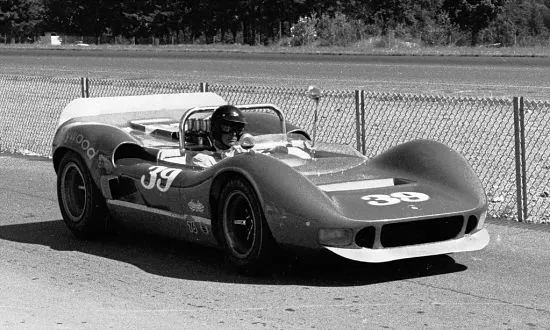Elva Tyres
If your car is not listed, don't panic! Please give us a call on:
01302 711 123
or
Email: sales@longstonetyres.co.uk
History of Elva
Club racing in the early 1950s was simple and fairly inexpensive, with many 'specials' built by inventive fans aiming for maximum performance at the lowest possible cost. Frank G. Nichols was one such enthusiast. In 1947, after leaving the Army with a gratuity and some mechanical skills, he purchased a small garage company in Westham. This was a success, and he relocated to a larger garage in London Road, Bexhill, where there was a strong local motorsport following. Bexhill was the site of the world's first road race on a public route.

After acquiring expertise in a Lotus VI, he ordered a 'CSM' from Mike Chapman, Nichols had several significant racing achievements, notably at Goodwood, and drew interest from other enthusiasts. He was astute enough to recognise that this capable compact automobile might be refined and marketed further, and he was soon able to construct a comparable chassis. 'Elva' was up and running.
The name is a derivation of 'elle va,' which means 'she goes,' and from this beginning, the name 'Elva' was later to be seen on almost a thousand racing, sports racing, and road driving automobiles. In barely ten years, engines have progressed from the Elva adapted Ford side valve to Climax, Ford DOHC, BMC, DKW, MGA, Porsche, and BMW, and finally to the large V8 McLaren-Elva automobiles. Following the success of a series of sports racers and formula junior cars in the United States, it was recommended that Elva Engineering construct a road-going 'sports racer,' and the prototype Elva Courier was developed in early 1958.
The Courier was powered by a 1500cc MGA engine housed on a ladder chassis. The engine was moved back in the chassis to aid with weight distribution. This resulted in good handling, but the inside became claustrophobic. The Courier's sleek shape gave it a luxurious appearance. The car's second iteration had a curved glass windscreen and a bigger 1600 cc MGA engine. The Courier was modified for usage on the track in addition to being utilised on the road. Mark Donohue won the SCCA F Prod Championship in 1960 and the SCCA E Prod Championship in 1961 in a Courier.
Overseas financial troubles were caused by distribution issues. It proved difficult to move Elva automobiles from the United States to Europe, forcing the firm into voluntary liquidation. As a result, Trojan Limited purchased the Courier's rights in 1961. In 1962, Trojan released the third version of the Courier, which was available as a full car and as a kit.
